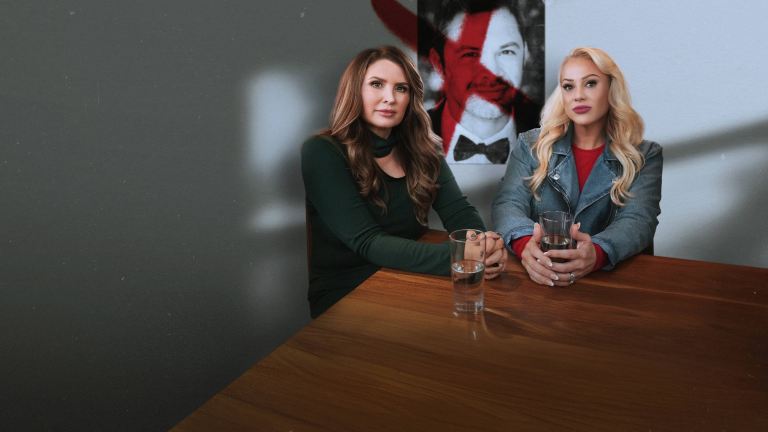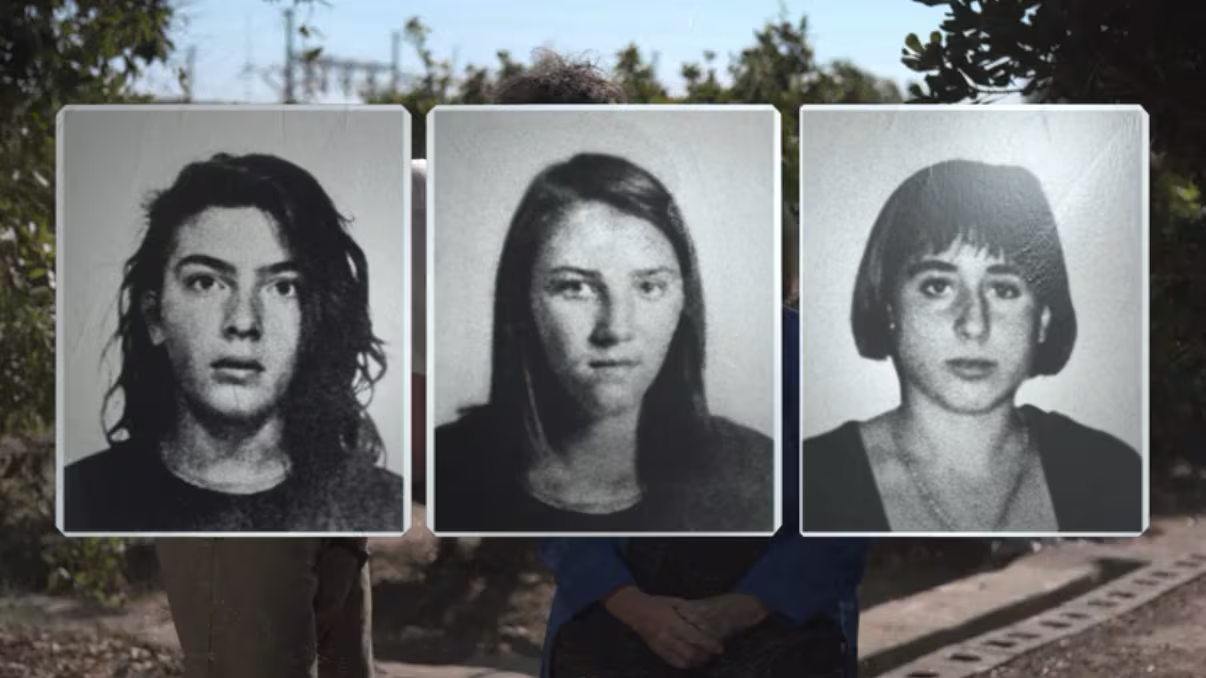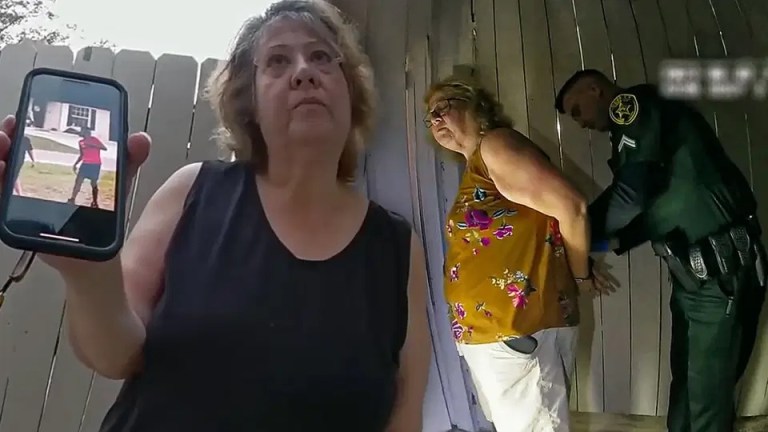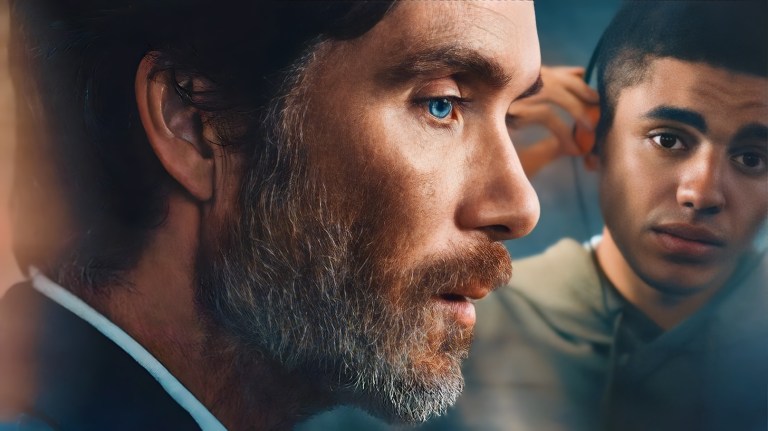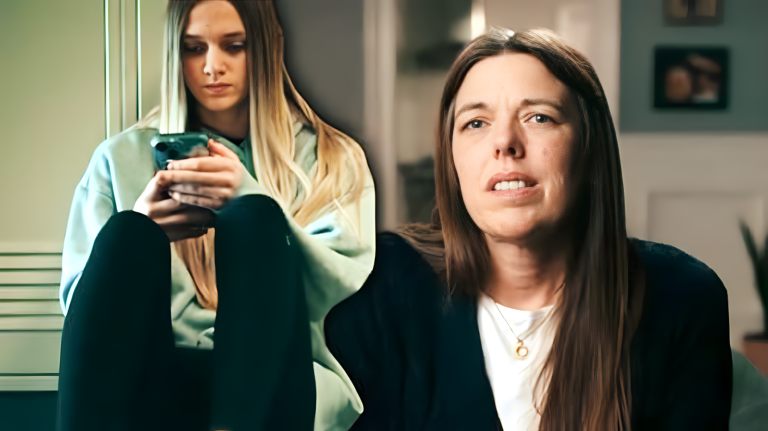
She Called Him Dad, The World Called Him The BTK Killer- Inside Netflix’s Newest (And Most Unsettling) True Crime Documentary
Netflix’s latest true crime documentary, My Father, the BTK Killer, directed by Skye Borgman, is equal parts unnerving and riveting - which is exactly why I think you should be streaming this.
By Erin Whitten
Netflix’s latest true crime documentary, My Father, the BTK Killer, directed by Skye Borgman, is equal parts unnerving and riveting – which is exactly why I think you should be streaming this. Borgman is an Oscar-nominated director who has worked on such true-crime documentaries as Abducted in Plain Sight and Unknown Number: The High School Catfish but unlike most true crime, My Father, the BTK Killer isn’t obsessed with the forensic elements of murder. It instead focuses instead on the daughter of Dennis Rader, the Wichita, Kansas, serial killer known as the BTK Killer who eluded police for over a decade.
Rader, who got the moniker “BTK” for the way he killed his victims (Bind, Torture, Kill), was a quiet and obedient family man by day and a rapist and murderer by night. He was caught when his need for attention and his pride in his “work” got the better of him. In 2005, he mailed a floppy disk to local media and authorities as a taunt, falsely believing them when they said it couldn’t be traced. Investigators traced the metadata on the disk back to Christ Lutheran Church and Rader, eventually confirming his identity with DNA samples from his daughter’s medical records.
In the documentary, Rader’s daughter Kerri Rawson describes the effect the announcement had on her life when FBI agents and local police officers showed up at her home in Michigan. She was 26, married, and pregnant when they told her the news. Like her mother, Kerri initially refused to believe the idea her beloved father was a serial killer. “I tried to tell them what a great man you are,” she later writes in a letter to her father. “But they didn’t listen.” Kerri says in the film that the next 10 years of her life were spent in silence and isolation. Wracked with shame and confusion, she could not bring herself to speak of her father. “I spent almost ten years rotting inside,” she says. “Not being able to speak, not thinking I was allowed to speak. In the Midwest code, you don’t ever air your dirty laundry. You just keep it inside and look appropriate on the outside.”

The film traces Rawson’s painful journey back to her childhood, revisiting the house that once seemed ordinary but now feels haunted. She recalls her father’s temper, the strict household rules, and her instinctive fear of upsetting him. Though he was often loving, there was a volatility that no one dared name. After Rader’s arrest, Rawson found one of his notebooks describing a bondage fantasy involving her name, a discovery that forced her to confront the blurred boundary between her father’s secret life and her own memories. When she asked him directly years later whether he had ever hurt her, he dismissed it as “just a fantasy,” showing the same chilling lack of remorse he displayed when describing his murders in court.
Borgman pulls together Kerri’s testimony, archival footage, Rader’s interview with police, and written and recorded evidence from his crimes. There are police sketches of the long-dead victims next to home videos of Kerri as a child in her suburban home. She speaks candidly about Rader’s temper and the punishing household rules she had to follow. We see the house where Kerri grew up, now for sale, with a for-sale sign in the front yard. The quiet of the film feels both banal and haunted. For all its intimacy, the film is as much a horror movie as any slasher film. We see photos of Rader laughing at his home entertainment system with his daughter sitting on his lap. We learn how he stashed his kill kit in the coat closet of the family home and how he used the family station wagon to haul off bodies. The space between Rader’s ordinary family life and his nighttime murders is where the film’s true horror lies.

In a true-crime landscape oversaturated with fascination on serial killers, My Father, the BTK Killer is as unsettling as it is harrowing. It’s not about the brutality of Dennis Rader’s crimes, we’ve seen those in other documentaries and films, made all the more gruesome by his recollection in court and in confessions to police. What’s more terrifying are the glimpses we see of him as a father living the quiet suburban life where he killed his victims.
My Father, the BTK Killer focuses the most on Rawson’s humanity and most importantly her attempts to grapple with her memories. This is her story, not his, and even as we hear about his crimes, we are always pulled back to Kerri and her loss, to her struggle to find peace in a life upended by the man who called her daughter. As she notes late in the documentary, “I can’t outrun his name. I can’t outrun my face,” the evidence that she is the daughter of a man who “fooled a church, fooled a city, and fooled the world.” True crime has been referred to as a genre built on hate-watching and as a true crime obsessive, I’m both repulsed and seduced by it. Yet in a genre that profits from the gruesome details of serial killers’ depravity, My Father, the BTK Killer is a stark reminder on how to do it the right way.
